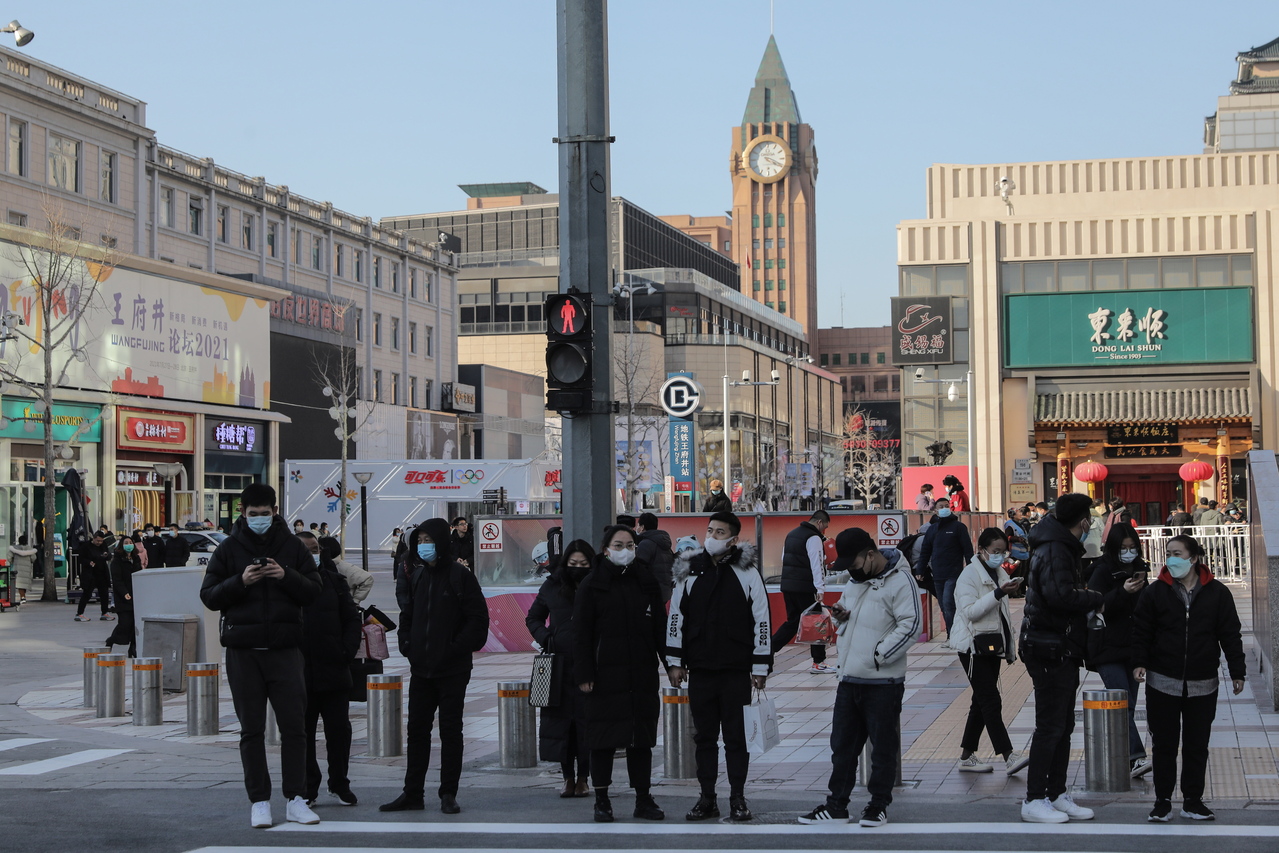Asian Insider
Subtle shift in China's Covid-19 approach but full reopening unlikely soon
Sign up now: Get insights on Asia's fast-moving developments

As of Feb 19, 1.23 billion of China's 1.4 billion population, or almost 88 per cent, had been fully vaccinated.
PHOTO: EPA-EFE
BEIJING - With sporadic Covid-19 clusters popping up across China, local governments have turned to a tried-and-tested playbook of lockdowns and movement controls.
But two years into the pandemic, with economic growth starting to slow and consumer demand still sluggish, policymakers are subtly softening their stance, moving from a strict "zero-Covid-19" approach towards what they call "dynamic zero".
In the latest iteration, officials are further finessing preventive and containment measures to ensure the least possible disruption to economic and social activity.
The approach does not mean there will be "zero infections", Dr Liang Wannian, head of the Covid-19 response expert panel under the National Health Commission (NHC), told the official Xinhua news agency. It simply means outbreaks are quickly contained, he said.
One of the biggest signals of a shift came from China's top economic planning body that last week ordered local governments to stop excessive control measures, which it said was hurting small and medium-sized businesses.
In a policy paper, the National Development and Reform Commission (NDRC) also announced a series of tax reliefs and fiscal compensations to help the services sector better cope with Covid-19.
"People in low-risk areas shall not be prohibited from returning to their home towns; the scope of medium and high-risk areas shall not be arbitrarily expanded," the paper said, adding that centralised quarantine cannot be arbitrarily implemented nor should the local authorities expand lockdown areas without prior approval.
The 10-page report was jointly issued by the NDRC and 13 other departments including the NHC, Ministry of Finance and Ministry of Culture and Tourism.
During the Chinese New Year holidays earlier this month, several local governments including in Shandong province had initially barred Beijing residents from returning to their home towns after an outbreak in the capital city, subjecting some to 14-day quarantine.
After an outcry, the NHC issued a statement warning local governments against capriciously implementing policy.
The shift was subtle but the message was clear: Gone are the days of enforcing lockdowns at all cost.
China's services sectors, particularly small and medium-sized businesses in tourism, catering, entertainment and retail, have been hit particularly hard by excessive control measures.
Despite better than expected overall economic growth, consumer demand has continued to lag.
China's economy grew 8.1 per cent last year, mostly driven by industrial production. Retail sales, an indicator of consumer demand, grew by 12.5 per cent last year, a reversal of the previous year's contraction.
This was, however, mostly concentrated in urban areas. Most economic forecasts have predicted consumer spending to remain sluggish this year as sporadic lockdowns continue to bear on the travel and retail sectors.
With borders still shut to leisure travel and the government not issuing new passports, there had been a drive to promote domestic tourism in a bid to drive the sector's recovery.
But the brief periods of rebounds had been punctuated by dips after outbreaks and lockdowns kept more people at home.
According to a McKinsey survey in October last year, after a spate of outbreaks following the National Day holiday, only 2 per cent of respondents planned to travel within the next two months.
But there are hopes that the country could soon reopen: The aviation regulator said in its latest five-year plan issued last month that it was focused on restoring international air travel between 2023 and 2025.
Part of this also has to do with the country's increasing vaccination rates.
As of last Saturday (Feb 19), 1.23 billion of China's 1.4 billion population - or almost 88 per cent - had been fully vaccinated, according to the NHC.
Booster shots are also being progressively rolled out across the country, while Pfizer's oral antiviral pill Paxlovid was given the green light by regulators earlier this month.
There are more new polices in the works, but China is unlikely to fully reopen in the same way some Western countries have done, said Dr Wu Zunyou, chief epidemiologist with the Chinese Centre for Disease Control and Prevention, at a forum last week at Renmin University in Beijing.
Any new approaches would allow China to better interact with the rest of the world to safeguard its own economic development, Dr Wu said, adding that it would put "people first and life first".
"We have some private companies and self-employed people facing tremendous pressure," he said, adding that the longer current measures continue, the more livelihoods will be put at risk.


